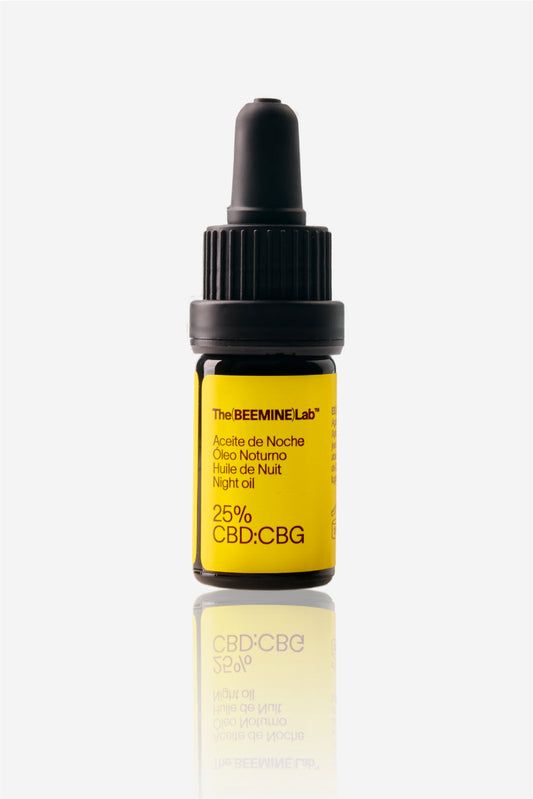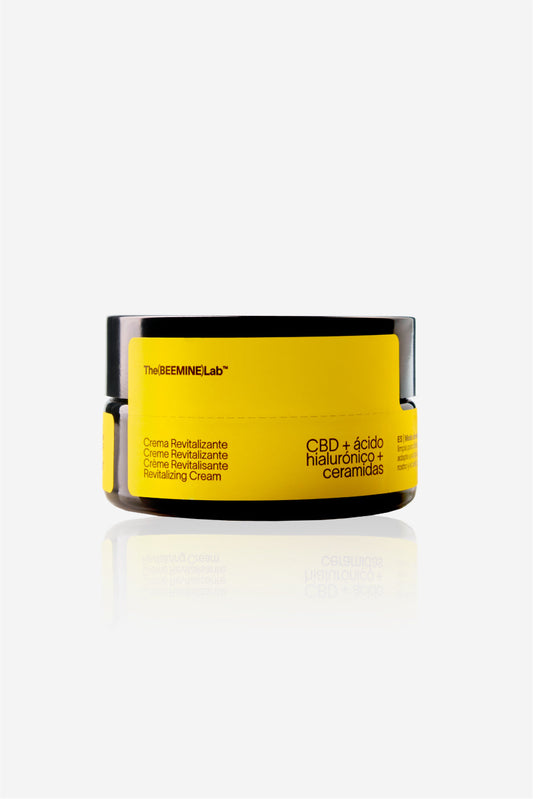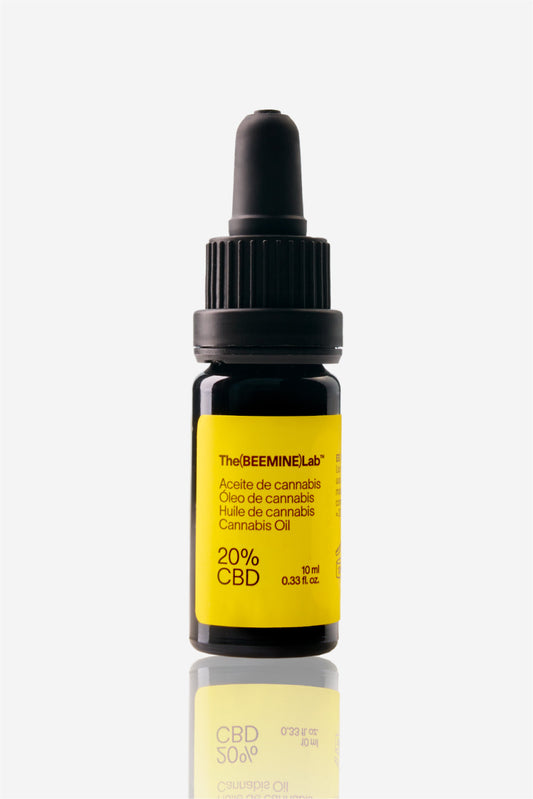Understanding the reproductive system and the importance of intimate health
Let's start with the basics, the reproductive system. This system is a complex set consisting of two zones: internal and external.
- The external zone consists of the labia majora (labia majora), labia minora (labia minora), Bartholin's glands, the clitoris and the lower vagina.
- The internal zone is made up of the upper vagina, the uterus, the ovaries, and two fallopian tubes. This set is the boss of reproduction and fertility, arousal and pleasure, and is also part of our endocrine system, that is, the great producer of hormones. The ovaries are responsible for producing hormones, closely related to the activity of the hypothalamus, an area of the brain responsible for regulating temperature, heart rate, thirst, hunger, sleep cycles and hormonal pressure.
The health of the intimate area depends on an integrated process in our body and just as it occurs to promote the well-being and balance of our entire organism, it is essential to exercise, eat well, stay hydrated and keep stress at bay... That is, keep the mind and body happy and healthy.
Important fact : The reproductive system is a completely self-sufficient system, it is important that we do not do things that take away from the balance that it achieves by itself. Intimate health, and vaginal health, can be affected by several factors in our lives. Vaginal problems can affect fertility, sexual desire and the ability to reach orgasm. It can also cause stress, lack of self-esteem and confidence, creating physical and mental tension both inside and outside of our intimate relationships.
The best way to prevent this from happening is to understand what the most common problems are, their triggers, and the tools we have to improve our intimate health.
The most common problems in intimate health
- Infections (Vaginitis; BV or Fungus, STI)
- Vaginal pain
- Vaginal dryness
- Pathologies such as Endometriosis, Vaginismus, pelvic inflammatory disease (PID)
- Cysts
- Pelvic floor dysfunction
- Decreased sexual desire
- Sexual anxiety
These problems can find their root in:
Sexual relations
- Unprotected penetrative sex increases the risk of transmitting STIs and can also cause infections such as Trichomoniasis, human papillomavirus, and pelvic inflammatory disease .
- Intense, aggressive or violent sexual relations can cause vaginal trauma or injuries, increasing possible tears in the vaginal lining.
Contraceptives
- Contraceptives such as the pill or IUDs can cause vaginal dryness and decreased libido.
- Physical contraceptives can cause irritation.
Intimate hygiene products *
- Intimate hygiene products can disrupt the natural balance of the area. Experts do not recommend the use of intimate soaps, vaginal douches, or cleansing wipes for the internal area of the intimate zone. At most, a gentle soap in the external genital area with the appropriate pH for the woman's stage is recommended!
*
Important fact : The
vagina cleans itself and has a series of bacteria that fight possible infections. It is a balanced ecosystem. When we modify this natural flora we can upset this delicate balance that is essential for the functioning of the intimate area.
Hormonal changes
(Due to menopause or pregnancy and breastfeeding periods)
- When estrogen levels decrease ( vaginal atrophy ), the walls of the vagina may shrink, causing pain during penetration.
- There is a decrease in glycogen and lactic acid-producing lactobacilli, which causes the pH to increase, producing an imbalance in the vaginal flora and decreasing moisture and lubrication, as well as local blood circulation, which produces a possible reduction of the vaginal walls (vaginal atrophy), causing pain during penetration.
Psychological afflictions :
- Anxiety and depression can lower sexual desire, causing pain.
- Trauma, and syndromes such as Post-Traumatic Stress Disorder, can lead to painful sexual experiences, anxiety, and pain.
Pathologies
(Endometriosis, Pelvic inflammatory disease)
Use of antibiotics
In addition to eliminating the bacteria that cause infections (such as urinary tract infections), antibiotics also destroy the bacteria in the vagina that are necessary to maintain a balanced ecosystem, increasing the possibility of colonization by opportunistic germs.
When we are prescribed antibiotics, it is important to take measures to replace this possible loss of bacteria. These bacteria are necessary to maintain the health of the intimate area, since we can upset the natural flora and cause infections such as candidiasis, etc. We can ask our specialist or pharmacologist to recommend a probiotic supplement. For example, those with lactobacilli, responsible for the production of lactic acid, would allow us to maintain an acidic pH and optimal environmental conditions to restore vaginal balance.
Underwear
- Wearing thongs or non-breathable fabrics can cause greater imbalances and frequency of candidiasis and infections.
- The use of panty liners or pads made from plastic or cellulose derivatives.
Sources :
Mayo Clinic ,
Cleveland Clinic , NHS Sexual Health Recommendations and Study led by the
Sophy Project
How to improve our intimate health
- First and foremost, information is power. Since you are reading this, that's one less thing!
- Read and listen to your body. If you see that something is not working or looks the way it should, do not delay in consulting a specialist.
- Find a good gynecologist, someone you can trust and feel safe in. And when something happens to you, make an appointment with a gynecology specialist.
Apart from that, some important tips for everyday life.
- Practice safe and responsible sex (Use condoms, clean your toys, stay away from toxic people)
- Maintain a healthy diet and exercise (Healthy body = healthy vagina)
- Avoid smoking and drinking, or at least try not to do so excessively ( Nicotine and alcohol can inhibit sexual desire, unbalance the natural flora and dry out the tissues, goodbye lubricity.)
- Do not use intimate hygiene products (douches, vaginal deodorants) in the internal area of the vagina. We agree that the vagina cleans itself!
-
Do your daily Kegel exercises to strengthen your pelvic floor (It's a muscle, after all, work it. It's no joke; Kegel exercises can increase natural lubricity, improve the experience of childbirth, sex and orgasms.)
- Avoid stress. Long periods of stress can also affect our intimate areas. Toxicity out, bad vibes out!
- Do you use products, i.e. intimate gels, that help facilitate pleasure without compromising vaginal health? Do you know our intimate gel with Propolis and Cannabis ?
You can find advice on different pathologies that affect intimate health in
our article .
Intimate health and Cannabis
The female reproductive system can benefit from the direct use of Cannabis, but also from those activities that improve our well-being and the balance of a system that you have probably never heard of.
The Endocannabinoid System and the reproductive system.
The
Endocannabinoid System , known by its acronym
ECS , is the reason why
cannabinoids affect us in such a special way. You probably didn't hear about it in school, and we're talking about a system that was discovered just 30 years ago.
Our ECS is a complex
network of intercellular communication ,
spread throughout our
body , composed of receptors, enzymes and endocannabinoids. These endocannabinoids are compounds similar to the plant's cannabinoids (CBD, THC...) but created by our own body (very cool!).
What does the Endocannabinoid System (ECS) do?
The primary role of the
Endocannabinoid System is
to achieve homeostasis , that is, the natural balance of the body. We like to say that it is like the body's thermostat always trying to keep us at a pleasant 21º.
In recent years, the importance of the ECS and its
fundamental role in
regulating important
physiological functions such as
mood ,
sleep ,
pain perception ,
memory ,
temperature regulation , the mechanism of
motivation and
reward , and many more, have been studied.
In 2014, several experts published a study arguing that modulating our ECS could have promising therapeutic potential in almost all human diseases. (
1 )
In conclusion, the ECS plays a fundamental role in overall health and well-being.
Phytocannabinoids offer an opportunity to
regulate and
stimulate our
endocannabinoid system.
What does the Endocannabinoid System have to do with the reproductive system?
As we discussed, the ECS is involved in any physiological function you can imagine, including the functions of the
reproductive system .
In the female
reproductive system , we find
cannabinoid receptors,
endocannabinoids , and
enzymes in different areas of the
ovarian cycle ; in glands responsible for different hormones, in the maturation of eggs, in the transport of embryos, in the placenta, etc. (
1 ) Studies show that the Endocannabinoid System, and its respective components play a significant role in (
1 ):
- Fertility
- Reproduction
- The Endocrine function (Production and release of different hormones i.e. being an important link of the reproductive system = part of the hypothalamic-pituitary-ovarian axis = HPO axis)
Including the feeling of excitement, greatly influenced by the use of cannabinoids
Now we will see how cannabinoids can improve our intimate health and our sexual experiences by modulating:
- The pleasure
- Stress
- The pain
The endocannabinoid system and pleasure
Several
experts have analyzed a
significant correlation between the
concentrations of
Endocannabinoids * (the cannabinoids that we produce) and
sexual arousal . It is believed that they may be closely related to the
feelings of
reward that
arousal and orgasms can give us. (
3 )(
4 )
*Specifically 2 AG
How CBD helps with pleasure
Phytocannabinoids can interact, modulate and stimulate our ECS. CBD, and some other cannabinoids, can improve the functioning of our Endocannabinoid System, bringing us into balance.
CBD acts in our body by prolonging the effect of endocannabinoids. In this way, it can be a great ally to prolong the feeling of excitement and pleasure during intimate relationships.
There are
studies that have analyzed that phytocannabinoids* could prolong the stimulating and rewarding effects due to the way they are distributed in our tissues. (
4 )
*However, chronic use of phytocannabinoids (studied more in THC) can create imbalances. We can agree on the Endocannabinoid Tone, which can be under or over expressed. Moderation is key!
Apart from the modulation of our Endocannabinoid System, there are two very interesting ways in which CBD can be useful in the sexual sphere and they are anxiety and pain.
These are two issues that can be closely linked. Furthermore, anxiety can often cause pain and vice versa.
The endocannabinoid system, stress and sexual anxiety.
What is sexual anxiety?
Sexual anxiety is a very common experience and can come from a variety of things. In addition, many times these types of pathologies are difficult to diagnose and solve since the people who suffer from it are not aware of it either.
Sexual anxiety takes away from the moment, the enjoyment and the vital connection we enjoy during intimate moments.
Shadeen Francis , a sex and couples therapist, says that sexual anxiety can include:
- Dissociation (Being in the clouds)
- Feelings of overwhelm, worry, assertiveness.
- Sex evasion
- Perfecting or criticizing our sexual abilities and body image
- Uncontrolled thoughts of possibilities of negative experiences
- Continuous search for approval.
- Anxiety attacks.
- Panic attacks.
- Muscle tension and pain
Sexual anxiety can affect anyone, but it is more likely in people who already suffer from an
anxiety disorder , depression, or people with sexual trauma and/or difficulties with self-esteem.
How CBD Helps Sexual Anxiety
Studies show that CBD, when administered systematically on a regular basis*:
- Reduces stress-induced heart rate and blood pressure
- Regulates the response to fear, stress and the mechanism of motivation and reward
- Blocks the re-consolidation of aversive memories (Very interesting for people with post-traumatic stress.)
- Relaxes the body and muscle tension
(
5 )(
6 )(
7 )
*Here we are talking only about internal forms (sublingual, ingested, transdermal, or inhaled), meaning that it affects globally. Although the science of Cannabis is still in its infancy, CBD has been demonstrating significant potential for treating anxiety for several years due to its anxiolytic, antipsychotic, relaxing, panic-relieving, and anti-compulsive properties.
How CBD helps with anxiety It also intervenes in the muscle tension that causes pain during sexual intercourse.
To reduce muscle tension, internal use of CBD is not necessary, therefore we can now enjoy it in Spain with topical products that help relax and reduce pain sensations, such as
CBD Massage Oil or
Cannabis Pleasure Gel .
CBD, pain and muscle relaxation.
Many people with vaginas suffer from pain during sex due to muscle tension caused by stress or anxiety, but other times it is due to other types of pathologies such as vaginismus or endometriosis.
In this case, CBD and THC* can help increase the feeling of relaxation, modulate pain and reduce inflammation.
*THC has a greater analgesic effect. (
8 )
CBD and menstrual pain.
There are 4 symptoms related to the female reproductive system cycles that can be relieved with CBD. We break them down below with references to our
article on menstrual pain and CBD, reviewed by cannabis expert Tommaso Bruscolini.
- DYSMENORRHEA, INFLAMMATION AND CRAMPS
CBD can help inhibit inflammation, which affects the uterus and breasts during menstrual cycles ( 9 ). It also modulates pain, so, together with a bag of seeds to apply heat, it can be a natural way to keep cramps and inflammation at bay ( 10 ).
- IRRITABILITY
CBD acts on our brain by regulating feelings of sadness, stress, and also happiness and pleasure, so it can be a great ally in regulating emotional changes related to the menstrual cycle.
- HEADACHE
This 2007 study links migraine and headache-related discomfort to an imbalance in the endocannabinoid system, so the use of phytocannabinoids such as CBD could be an effective treatment ( 11 ). Learn more in our article written by expert Tommaso Bruscolini How to take CBD oil for headaches? )
- HORMONAL ACNE BREAKOUTS
Topical CBD can also help us cleanse, repair and regulate the skin, balancing the skin's lipid production and providing its analgesic and anti-inflammatory properties. All of these qualities are ideal for treating and preventing acne. Learn more in our article reviewed by expert Dr. Joanna Kreitinger; Benefits of CBD for the skin .)
THC and sex
THC offers a higher degree of spirituality and a sense of connection between people. Already in some writings of ancient Asian cultures, Cannabis was known as a powerful aphrodisiac, but it was also used to reduce sexual desire. Everything, as always, depends on the physical build and mental health of the person and the dose. There are several studies* that have investigated the beneficial effects of small to moderate doses of THC:
- Increases sensory perception (touch etc.) ( 12 )
- Communication with the other person ( 13 )
- Body awareness ( 12 )
- Increase libido ( 14 )
- Improves orgasms ( 15 )
Recapitulating
Although the science of Cannabis is still in its infancy, CBD has been demonstrating significant potential for treating anxiety for several years due to its anxiolytic, antipsychotic, panicolytic and anti-compulsive properties. Its effects on the modulation of pain signals and inflammation are also clear.
But the most interesting thing is how cannabinoids can be a great ally in modulating the natural fluctuations of the cycles of the female reproductive system, avoiding hormonal imbalances and some of the symptoms of premenstrual syndrome: pain, mood swings, inflammation, headaches...
Bibliography :
- Pacher P, Kunos G. Modulating the endocannabinoid system in human health and disease--successes and failures . FEBS J. 2013.
- Walker, OS, Holloway, AC & Raha, S. O'Llenecia S. Walker, Alison C. Holloway & Sandeep Raha. The role of the endocannabinoid system in female reproductive tissues . J Ovarian Res. 2019.
- Fuss J, Bindila L, Wiedemann K, et al. Masturbation to Orgasm Stimulates the Release of the Endocannabinoid 2-Arachidonoylglycerol in Humans . J Sex Med 2017;14:1372–1379.
- Klein C, Hill MN, Chang SCH, Hillard CJ, and Gorzalka BB. Circulating endocannabinoid concentrations and sexual arousal in women . J Sex Med 2012.
- Esther M. Blessing et al. Cannabidiol as a Potential Treatment for Anxiety Disorders . 2015
- Peter Grinspoon, MD. Cannabidiol (CBD) — what we know and what we don't . Harvard Contributor. 2019
- Skelley JW, Deas CM, Curren Z, Ennis J. Use of cannabidiol in anxiety and anxiety-related disorders. J Am Pharm Assoc (2003) . 2020.
- Elikkottil J, Gupta P, Gupta K. The analgesic potential of cannabinoids . J Opioid Manag. 2010
- Ruhaak LR, Felth J, Karlsson PC, Rafter JJ, Verpoorte R, Bohlin L. Evaluation of the cyclooxygenase inhibiting effects of six major cannabinoids isolated from Cannabis sativa . Biol Pharm Bull. 2011.
- Bohonyi N, Pohóczky K, Szalontai B, et al. Local upregulation of transient receptor potential ankyrin 1 and transient receptor potential vanilloid 1 ion channels in rectosigmoid deep infiltrating endometriosis . Mol Pain. 2017.
- Sarchielli, P., Pini, L., Coppola, F. et al. Endocannabinoids in Chronic Migraine: CSF Findings Suggest a System Failure . Neuropsychopharmacol 32, 1384–1390. 2007.
- Wiebe E, Just A. How Cannabis Alters Sexual Experience: A Survey of Men and Women . J Sex Med. 2019.
- G. Scimeca, C. Chisari, et al. Cannabis and Sexual Behavior (Chapter 19) Handbook of Cannabis and Related Pathologies . 2017.
- A. Sun, M. Eisenberg. Association Between Marijuana Use and Sexual Frequency in the United States: A Population-Based Study . J Sex Med. 2017.
- Becky Lynn MD et al The Relationship between Marijuana Use Prior to Sex and Sexual Function in Women . 2019







